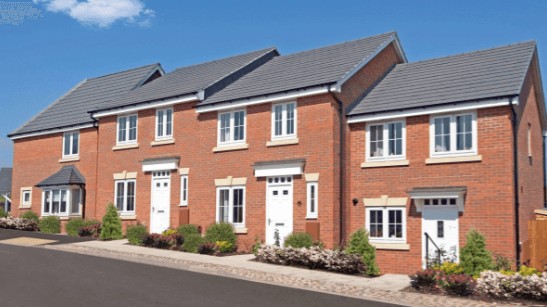Due to the lack of property available across the country, the UK government is currently heavily incentivising new build homes, as well stating that in the next five years it aims to build over one million more new build homes. But what exactly is meant by a new build, and what is classed as one? We take a further look so you can make a more informed decision as to whether or not purchasing a new-build property is the right step for you.
What is a new build home?
In the simplest terms, this is defined as a property that has been yet to be purchased (it can still be occupied during this time_ within the first two years of being constructed, refurbished or converted. The new-build definition also extends to properties that have been bought off plan.
What are the benefits of new build homes?
There are a number of different potential benefits when it comes to deciding to purchase a new-build home. Here are some of the main reasons:
- The flexibility you have: as it is a new-build you do not have to worry when it comes to buying the process of being part of a chain, which can take a considerable amount of time and can also be quite stressful. It also means you have the flexibility to move at your own pace when it comes to sorting out the sale, and you have the flexibility when it comes to moving in, as you do not need to worry about waiting on buyers involved in an upward chain
- It comes with cover: it is possible that it is registered with the National House Building Council (NHBC) which will mean that you will be provided with a 10-year warranty and protection scheme too, which can help to provide you with peace of mind. There are also other companies that can provide insurance and warranties for new build homes, such as BLP
- Low maintenance: one of the best things about new-build homes is the fact you do not have to worry or get stressed out about maintenance, repairs or decorating when you first move in. In fact, it could mean that this kind of work will actually take place a few years down the line.
- Security: as a result of the high building standards now in place for all new-build homes, you can be safe in the knowledge that the property is safe. For example, most new-builds come with locks on doors and windows, fire safety, security lighting and in some places entry phones
- Getting in early: a number of housing developers and builders provide properties off plan, which means you have the potential to reserve your dream home prior to it being built. Furthermore, you could also end up potentially benefit from equity growth before you’ve even moved into the property if you manage to buy off plan in a location where house prices are on the rise.
- Bills are less expensive: another positive of new build properties relates to the reason that new builds are usually built and fitted with the very latest energy efficient appliances. That means then for you as a homeowner, they will most likely be cheaper to run than older properties, and they tend to be triple glazed or well insulated.
Schemes for new build homes
As well as potentially taking out bridging loans, there are support and schemes available for buyers who are interested in purchasing a new-build property.
Help to Buy
There are two parts to the Help to Buy Scheme. This is an initiative that enables first-time buyers and existing homeowners in England to buy a new home or an older property. There are also schemes that work in a similar way in Wales, Scotland and Northern Ireland.
It is worth noting there are two parts to the Help to Buy scheme:
- The equity loan: this can only be taken out for new-build homes only, and requires the buyer to have a deposit minimum of 5 per cent, with the government then providing a loan equal to 20 per cent of the value of the property.
- The mortgage guarantee: the second part of the Help to Buy scheme is where the government provides lenders with the opportunity to buy themselves a guarantee on mortgages (available for both new-build properties and older, resale homes too). That allows mortgage providers to then provide a greater number of high loan-to-value mortgages to borrowers as a result of this kind of insurance.
Starter Homes
Another government scheme pertains to the Starter Homes initiative. This is a pledge by the government to build thousands of homes at a discount to first-time home buyers who are between the ages of 23 and 40. However, at this moment in time, there have been no properties been built.
Shared ownership scheme
With this scheme, buyers who fit the eligibility criteria are able to purchase a percentage of a property (anywhere from 25 per cent to 75 per cent in total) of a new -build house from a local housing association. Over the course of time, they then pay rent that relates to the percentage of the property you do not own. Eventually, you will end up owning all of the property.
Increasingly, developers and house builders are offering their own incentives to buyers. These may include any of the following:
- Paid deposit
- Part-exchange deals, where your existing home is bought from you by the developer and then sold on
- Assisted sales, i.e. helping you to sell your existing property
- Free fixtures or fittings
- Paid Stamp Duty Land Tax
- Cashback
